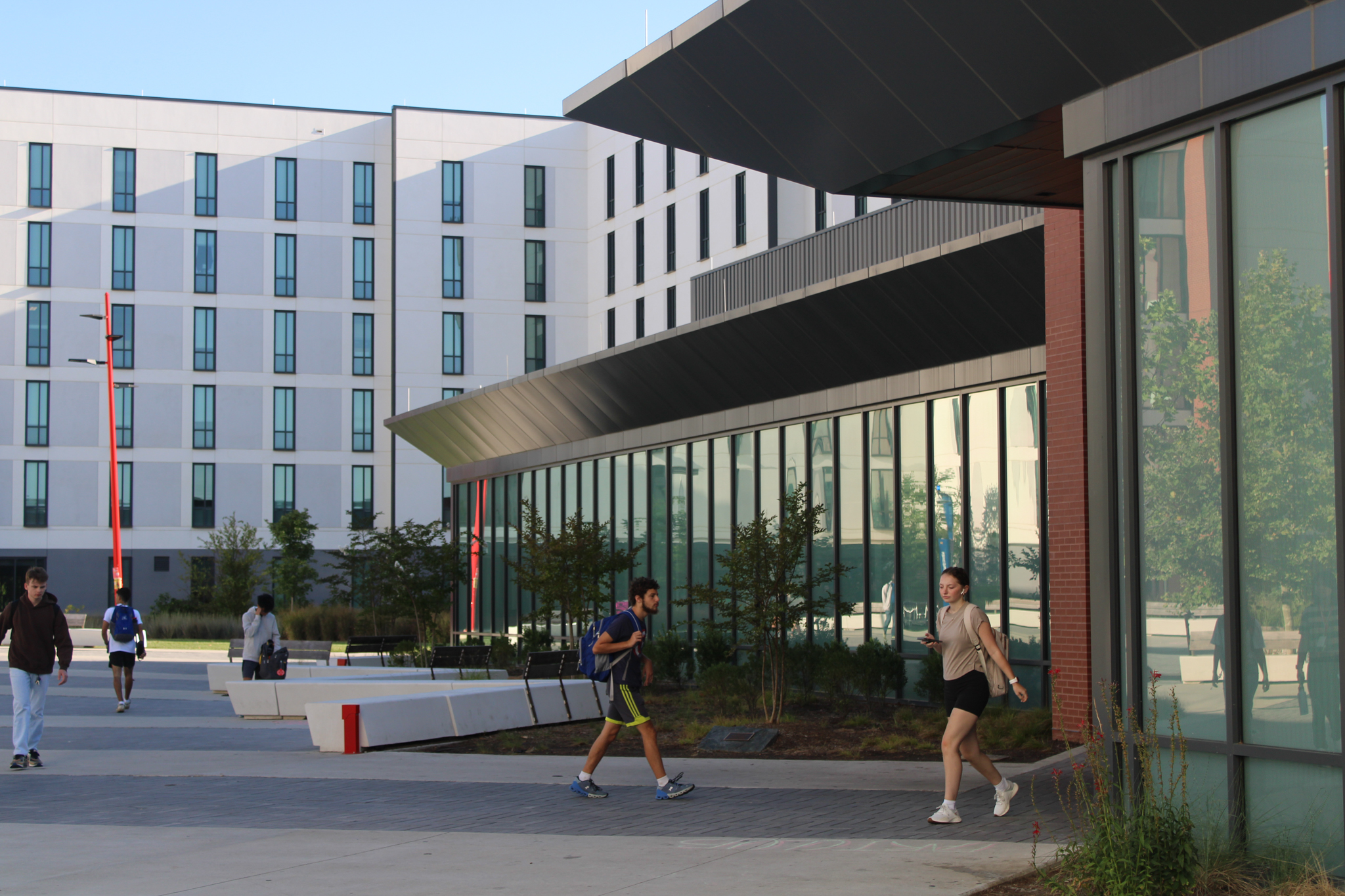Starting this year, all compostable materials must be collected when food is served at University of Maryland sponsored events and gatherings.
This is in accordance with a new Maryland law requiring all entities that produce more than two tons of food waste — or material derived from processed or discarded food — per week to separate the waste from other solids during disposal. Starting in 2024, the law will also apply to entities that produce at least one ton of food waste per week.
The law aims to prevent waste before it occurs, feed people and animals, recycle non-edible food waste and reduce greenhouse gasses emitted from landfills.
As a large organization, this university is subject to the new law and is meeting its obligation through the adjustment and expansion of an existing and voluntary composting program, a university spokesperson told The Diamondback.
This university plans to add more composting bins on campus and increase education to supplement its existing composting efforts, the spokesperson said. This university will also quantify and track food waste, greenhouse gas emission reduction and more as part of its efforts, according to the spokesperson.
[New LGBTQ+ Equity Center director to focus on fostering community]
This university’s Dining Services has prioritized sustainability in recent years, according to Dining Services spokesperson Bart Hipple.
“When I started, we had trash cans and we had a chute from the dining hall. You just threw stuff down and it went down three floors into a giant compactor,” Hipple said. “That was it; single stream trash.”
Now, there is almost no disposable plastic in dining halls. Anything that goes back on a tray after someone finishes eating can be composted, recycled or both, Hipple said.
Approximately 6.3 million pieces of trash were taken out of the waste system each year after the dining halls eliminated carry out options. Plastic bags, straws, utensils and more have been replaced by recyclable or compostable options or were eliminated from Dining Services altogether, unless a specific franchise partner requests them.
“[The law] kind of clarifies our vision, and it really gives us a target to aim for,” Hipple said. “It’s a direction we were going in anyway, and have been for a very long time.”
In addition to dining halls, compost containers are located in buildings — including Stamp Student Union — and placed across campus during special events like Maryland Day, according to the university spokesperson.
[High confirmation rate for incoming UMD freshmen spurs housing stress among students]
Conformance with the new law follows the university’s mission to minimize solid waste generation and divert 65 percent of total solid waste from landfills by 2025. It also helps reduce the university’s overall carbon footprint.
“Being able to keep the food scraps out of the landfill is really important,” said Jon Traunfeld, who directs this university’s Home and Garden Information Center.
There is very little air as food scraps decompose within landfills. This results in the excess release of potent greenhouse gasses, especially methane gas, Traunfeld said.
When food waste reaches landfills, natural nutrient and carbon cycles end prematurely, which contributes to greenhouse gas production, according to Stephanie Lansing, an environmental science and technology professor at this university.
“Right now, about a third of our food waste is actually wasted globally, and in Maryland about 20 percent of our landfill content is food waste,” Lansing said.
Composting, on the other hand, is a natural process that happens constantly. When living species die and decompose, organic matter from their remains benefits the environment. The compost of the decomposing organic matter helps recycle nutrients and holds carbon in the soil, which improves soil health.
“Intercepting the food scraps and then actively composting them means that we can actually mitigate climate change, to some degree,” Traunfeld said.



